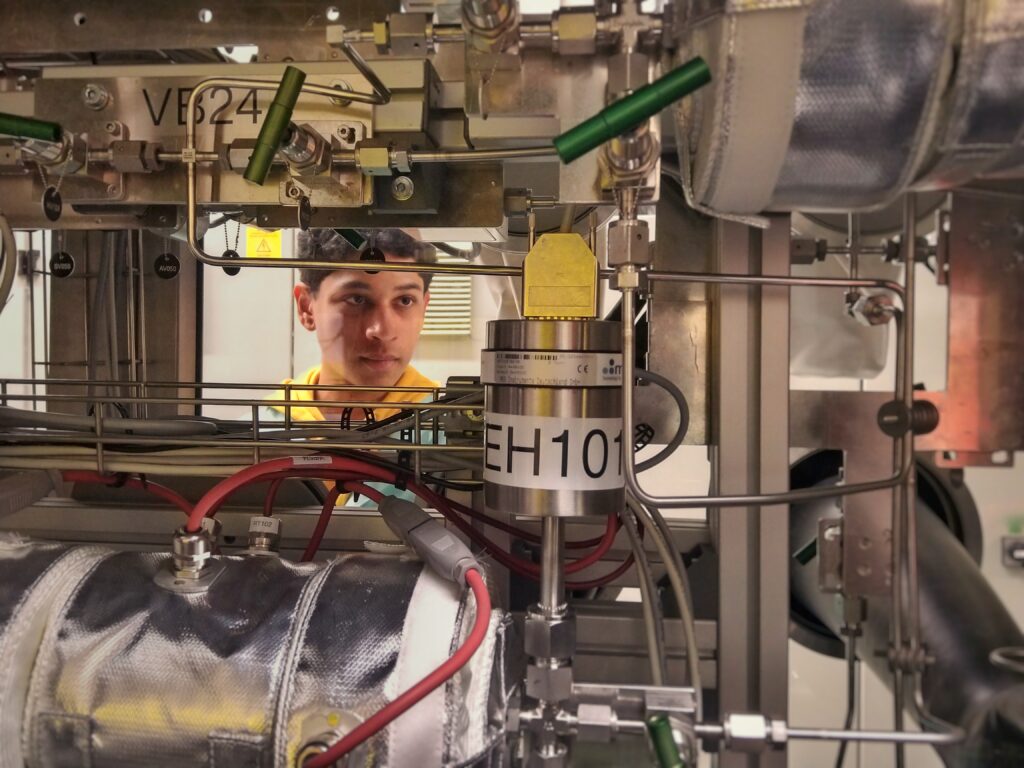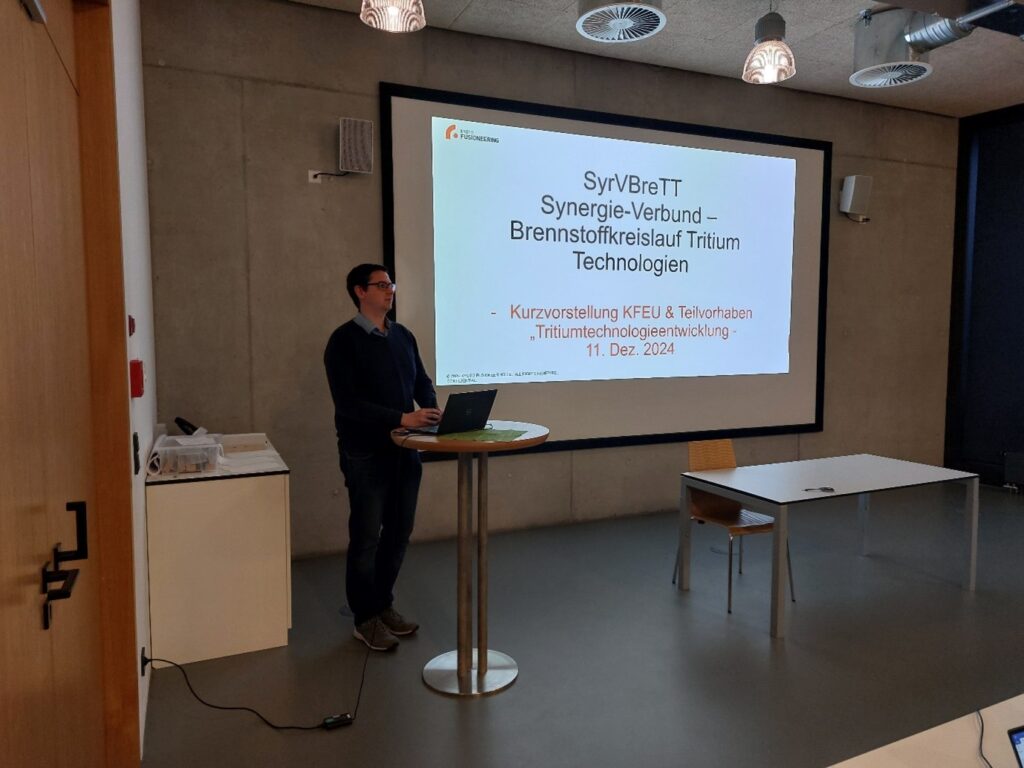Grant to Support Groundbreaking Project in Fuel Cycle Tritium Technology Development
Kyoto Fusioneering Europe GmbH (KFEU), the Germany-based subsidiary of Kyoto Fusioneering Ltd. (KF), is excited to announce that it has received a research grant over more than 2.5 million Euros from the German Federal Ministry of Education and Research (BMBF) as part of the German federal fusion development program “Funding Program Fusion 2040”. This is the second grant that KF receives from BMBF this year (read more about the first project here).

In the SyrVBreTT (Synergy Consortium – Fuel Cycle Tritium Technologies) project KFEU in cooperation with its project partners will advance key technologies crucial to the development of commercial fusion power plants, reinforcing KFEU’s leadership in fuel cycle technology development.
In the scope of the project KFEU will design, and test tritium-compatible demonstrator units of a Metal Foil Pump (MFP, partnering with Karlsruhe Institute of Technology (KIT) and University of Stuttgart (UST)) and a centrifuge-driven Pellet Injection System (PIS, partnering with KIT). MFP is seen as a key technology for enabling Direct Internal Recyling (DIR). However, both technologies have the potential to substantially reduce the tritium inventory in future fusion power plants and are thus vital to improve licensing, safety and economic operation. In the scope of the project both demonstrator units will first be tested inactively at KIT and then transferred to the tritium fuel cycle demonstration platform UNITY-2 for validation with tritium.
Additionally, together with KIT, KFEU will investigate next generation tritium storage systems for safe stationary storage and transportation of tritium. Both are vital for the operation and widespread deployment of fusion devices in the future.
Finally, KFEU will develop a numerical tool for holistic tritium tracking in the fuel cycle. This tool will allow to select suitable tritium balancing areas in the fuel cycle, appropriate measurement points and sensor technologies while also accounting for the measurement uncertainty. The capabilities will be demonstrated by applying the tool to a prototypical stellarator fuel cycle.
Quotes:
Dr. Christian Day, Head of KFEU, Senior Vice President and Head of Fuel Cycle at KF, commented on the project, saying, “We are excited to advance these turn-key technologies and tools and are confident that they will enable the design of low tritium inventory fuel cycles”. Tim Teichmann, KFEU project lead of SyrVBreTT, adds “This will facilitate easier licensing and more economic operation of future tritium fuel cycles.”
Dr. Thomas Giegerich, head of the fusion fuel cycle research group at KIT and project partner, says: “We are looking forward to elevate the technology readiness level of these advanced fuel cycles technologies [metal foil pump and pellet injection system] with our strong partners.”
Dr. Matthias Walker, head of the plasma technology group at the Institute of Interfacial Engineering and Plasma Technology (IGVP) at the University of Stuttgart and project partner, states: “We are proud to be a partner in this groundbreaking project for future fusion power plants”. Dr. Stefan Merli, IGVP project lead, adds “We are excited to use our expertise in plasma technology for the development of a metal foil pump, which is a key technology for tritium separation and a tritium-reduced fuel cycle.”
About Kyoto Fusioneering, Ltd.
Kyoto Fusioneering is a privately funded fusion energy engineering company founded in 2019 and built on decades of fusion research at Kyoto University. Uniquely dedicated to tackling advanced fusion engineering challenges, we develop cutting-edge technologies for fusion power plants, including gyrotron systems, tritium fuel cycles, breeding blankets, and hydrogen isotope transfer pumps. Collaborating globally with fusion innovators, both private and public, and focusing on critical-path technologies, we strive to deliver on the promise of fusion. Headquartered in Tokyo, with a presence in the UK, US, and Germany, and an in-house Kyoto R&D Centre, we bring unmatched expertise and diverse solutions to the global fusion ecosystem.
Partnering with the Canadian Nuclear Laboratories, Kyoto Fusioneering has founded Fusion Fuel Cycles Inc. (FFC) as joint venture. FFC’s mission is to accelerate the deployment of fully integrated D-T fuel cycle systems that meet the highest safety and performance standards. The first project under this initiative is UNITY-2, a groundbreaking integrated and flexible fuel cycle test facility, which will be utilized for technology demonstration in this project.
Explore more about KF’s vision for the future of energy at www.kyotofusioneering.com/en/ or by contacting media@kyotofusioneering.com
About Karlsruhe Institute of Technology
The Karlsruhe Institute of Technology (KIT) has been actively and successfully researching fusion technologies for over 30 years and has achieved a top-class status in the fusion community with contributions to international fusion research facilities as well as national projects. In the European EUROfusion consortium, KIT has been the project leader for the fuel cycle work package from the very beginning.
About University of Stuttgart
The IGVP at the University of Stuttgart has many years of experience in the development and research of technological plasma sources from low to atmospheric pressure and plasma processes like coating deposition, surface activation and gas conversion.
In the field of fusion research, there are extensive activities in plasma dynamics and diagnostics as well as microwave transmission lines, ECRH heating and microwave diagnostics of fusion plasmas. There has been a decade-long cooperation with the Max Planck Institute for Plasma Physics IPP in Garching and the KIT.





